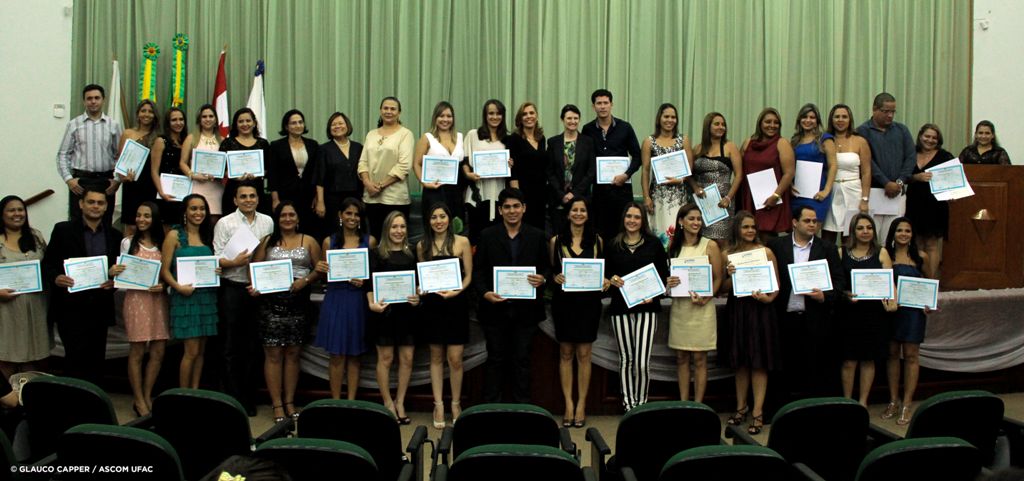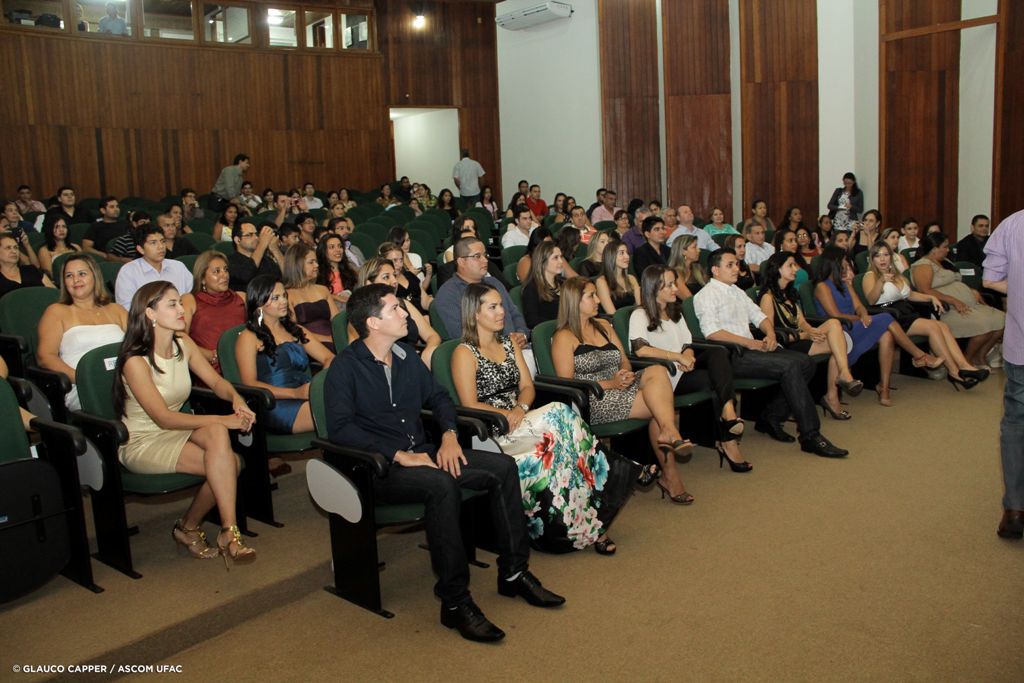The Garibaldi Amphitheatre in Rio Branco, capital of Acre, Brazil set the scene for a graduation ceremony that honoured 34 graduates of a specialization course in primary health care, the successful collaboration between the Federal University of Acre (UFAC) and Bloomberg Nursing and the promise of a stronger, more unified countrywide health care network.
Dean Sioban Nelson and director of Global Affairs, Freida Chavez, were on hand to give their support and congratulations to the newly-minted specialists. Graduates, and their families, were honoured that Bloomberg Nursing was able to participate in this important occasion, especially since Acre is in the extreme west of Brazil and requires considerable travel.
“Canada, and Bloomberg Nursing, is committed to working with Brazil in enhancing health care delivery through specialization,” said Dean Nelson in a speech to the new graduates. “The partnership has been, and will continue, as a successful and rewarding experience.”
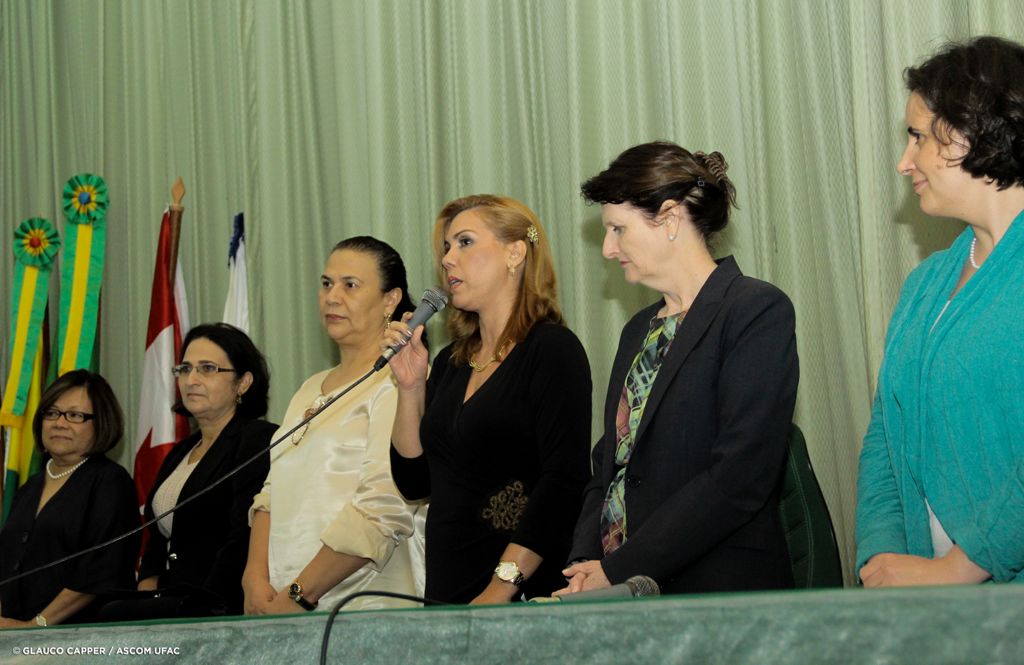
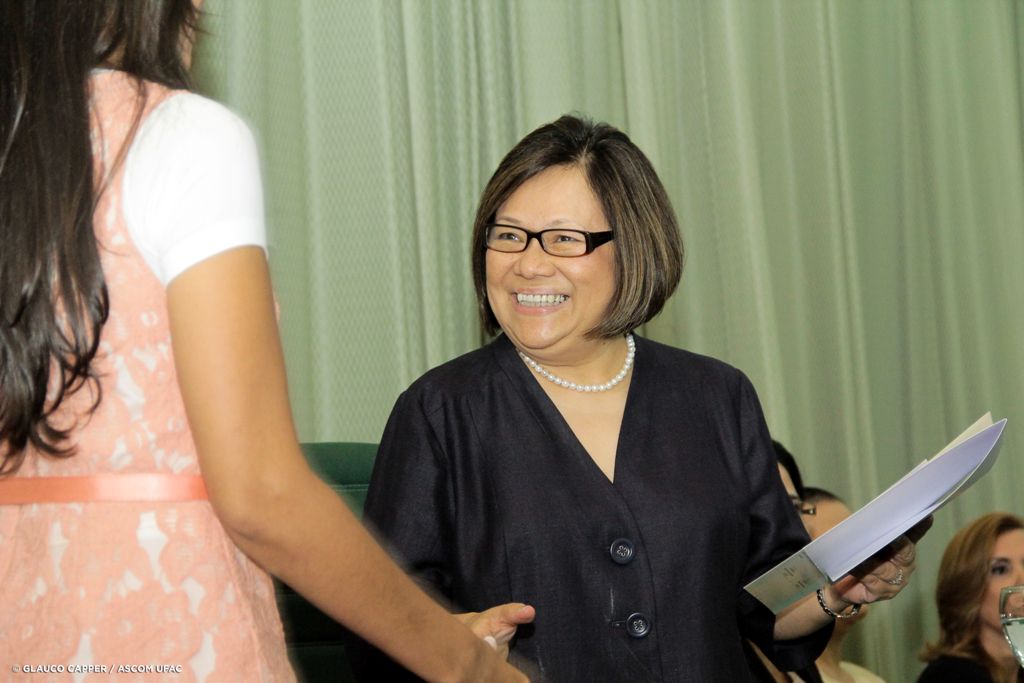
Strongly supported by the Acre State Secretariat of Health, government officials, past graduates, family, friends and professors all attended the ceremony; the second of its kind since the partnership began. The graduating health professionals including nurses, dentists and pharmacists all walked off the stage with certificates from UFAC and Bloomberg Nursing. More than that, “they walked away with the enhanced knowledge needed to implement primary healthcare (PHC) and collaborative practice to work with remote communities to build capacity and improve health outcomes,” said Freida Chavez who led the specialization course.
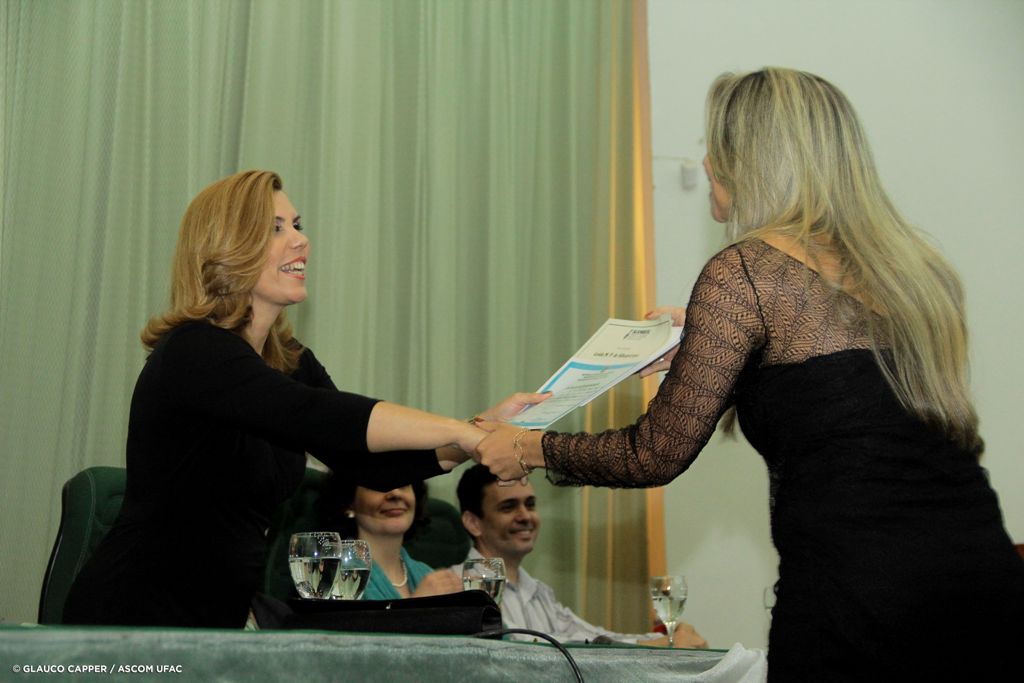
This specialization course, taught in modules over a six month period, has helped increase the number of qualified health professionals in Acre, Brazil. Already, graduates from the first specialization course have been promoted to positions that are impacting health policy at the government level. In isolated areas like Acre, which borders Peru and Bolivia, there is a real need to build capacity of qualified health professionals, and this collaboration has played an integral role in providing the means to strengthen health systems.
